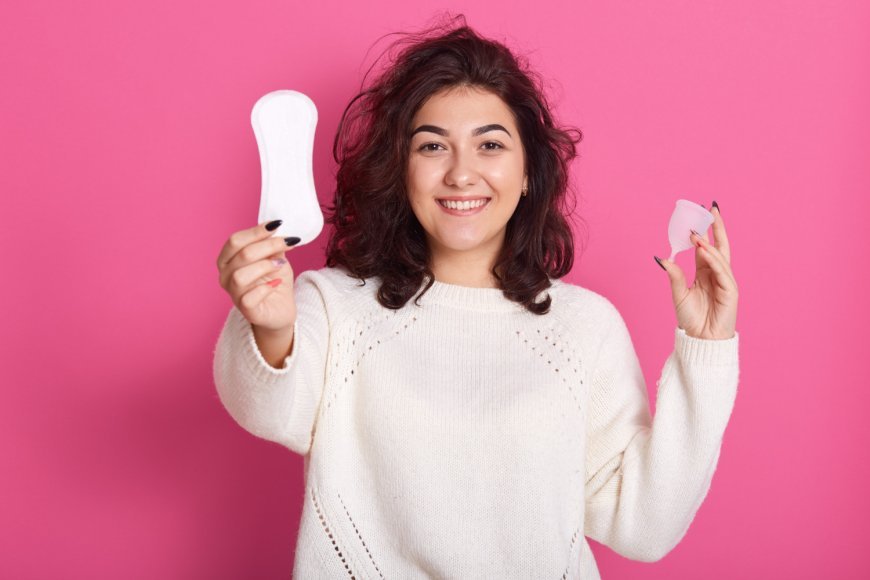Top 7 Menstrual Hygiene Practices Every Girl Should Know

For millions of girls and women around the world, understanding the basics of menstrual hygiene is still a challenge. This blog will help you learn the top 7 menstrual hygiene practices every girl should know to take care of herself during her periods.
Whether you're a young girl experiencing menstruation for the first time or someone helping others learn, these tips can help improve your menstrual health and hygiene in simple and effective ways.
1. Always Use Clean and Safe Sanitary Products
The first step to good menstrual hygiene is choosing the right product. Use clean, safe, and comfortable sanitary pads, tampons, or menstrual cups. Make sure they are from a trusted brand and are not expired.
If you use cloth pads, ensure they are washed properly and dried in sunlight before reuse. Never share your sanitary products with others and avoid using materials like old rags or unclean cloth, as they can cause infections.
Why it matters: Using clean products helps prevent infections and skin rashes, keeping your intimate area healthy.
2. Change Your Sanitary Product Regularly
No matter which sanitary product you use, it's important to change it every 4–6 hours. When pads or tampons are used for too long, they can lead to a build-up of bacteria and increase the risk of infections like urinary tract infections (UTIs) or even toxic shock syndrome (in rare cases).
Why it matters: Regular changes support better menstrual hygiene awareness and prevent bad odor, leakage, and discomfort.
3. Wash Your Genital Area Properly
During your period, it's essential to wash your genital area with warm water at least twice a day. Always wash from front to back and avoid using harsh soaps or scented products as they can disturb the natural pH balance.
Use mild soap or just clean water to gently cleanse the area. Don’t forget to wash your hands before and after changing your pad or tampon.
Why it matters: Good cleaning habits help maintain menstrual health and hygiene and reduce the risk of bacterial or fungal infections.
4. Dispose of Used Sanitary Products Safely
Proper disposal is an important part of menstrual hygiene awareness. Wrap used pads or tampons in paper or newspaper before throwing them in a dustbin. Never flush sanitary products down the toilet—they can block pipes and harm the environment.
If you're using cloth pads, store them in a clean bag after use until you can wash them properly.
Why it matters: Safe disposal prevents bad odor, bacterial spread, and helps keep the environment clean.
5. Wear Comfortable and Clean Underwear
Wearing breathable, cotton underwear during your periods is a simple but effective way to stay comfortable. Avoid tight-fitting or synthetic underwear as it can trap moisture and cause irritation.
Change your underwear daily and make sure they are clean and dry before wearing.
Why it matters: Clean underwear supports better menstrual hygiene and reduces the chance of infections or skin issues.
6. Track Your Menstrual Cycle
Keeping track of your period is helpful for your overall health. Use a calendar or a mobile app to note your start and end dates, symptoms, and flow levels. This helps you prepare in advance and know when something feels abnormal.
Knowing your cycle is a part of understanding your body and promoting menstrual hygiene awareness.
Why it matters: It helps detect irregularities early, manage premenstrual symptoms, and avoid surprises.
7. Talk Openly About Periods
Many girls grow up feeling shy or ashamed to talk about their periods. But talking openly about menstrual hygiene helps break the stigma and allows others to learn as well.
Whether it’s with your mom, a friend, a teacher, or a health worker—ask questions, share your experiences, and encourage open conversation. Communities, schools, and families should promote menstrual health and hygiene education for all.
Why it matters: Open conversations increase menstrual hygiene awareness and help girls feel more confident and supported.
Why Menstrual Hygiene Matters More Than Ever
Good menstrual hygiene is not a luxury—it’s a basic human right. Unfortunately, many girls in rural and low-income areas lack access to sanitary products, clean toilets, and information. This affects their school attendance, self-esteem, and health.
That’s why spreading menstrual hygiene awareness is critical. Governments, NGOs, schools, and communities must work together to make hygiene education and products available to all.
By promoting menstrual health and hygiene, we empower girls to stay in school, protect their health, and grow into confident women.
Final Thoughts
Periods are a natural part of life and managing them should never be difficult or embarrassing. Practicing the right hygiene habits can make a big difference in your health and comfort.
Here’s a quick recap of the top 7 menstrual hygiene practices:
-
Use clean and safe sanitary products
-
Change them regularly
-
Wash your genital area properly
-
Dispose of products safely
-
Wear clean and comfortable underwear
-
Track your period
-
Talk openly about it
By following these simple habits and encouraging others to do the same, we can create a world where every girl understands the value of menstrual hygiene, respects her body, and lives with dignity.
What's Your Reaction?



















































